AITA for not making food for my dad’s stepkids?
Family dynamics can be incredibly complex—especially when blended families and long-held responsibilities collide. In this case, a 16‑year‑old, who’s been making his own school lunches since he was 11 during his mom’s illness, now faces a new challenge. His dad’s wife, with three young stepkids, insists that he extend his cooking duties to cover their meals as well. This isn’t just about food; it’s about boundaries and fairness in a co-parenting arrangement that wasn’t his to begin with.
The tension escalated when his dad’s wife threatened to withhold dinner and accused him of not being a “decent kid.” He stood his ground, arguing that the responsibility for feeding her children lies with her and his dad—not him. This story raises the question: Is he the AH for refusing to cook for kids who aren’t his?
‘AITA for not making food for my dad’s stepkids?’
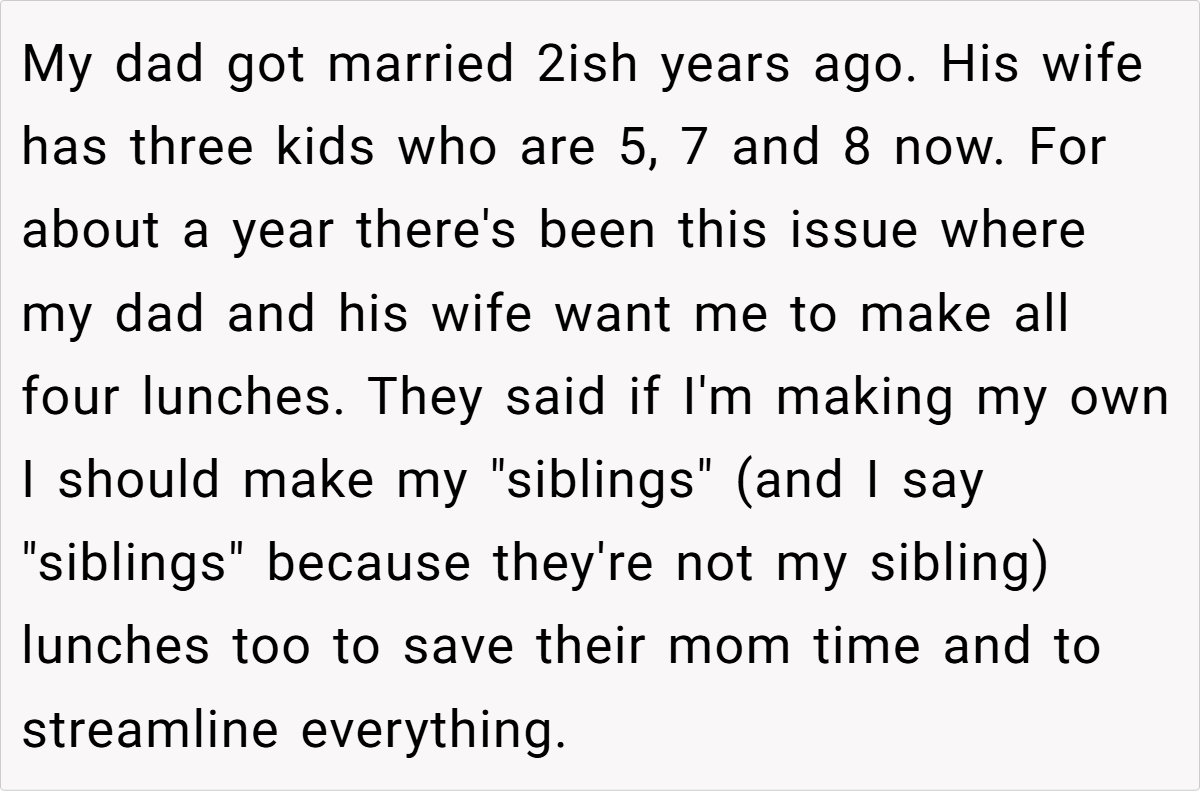

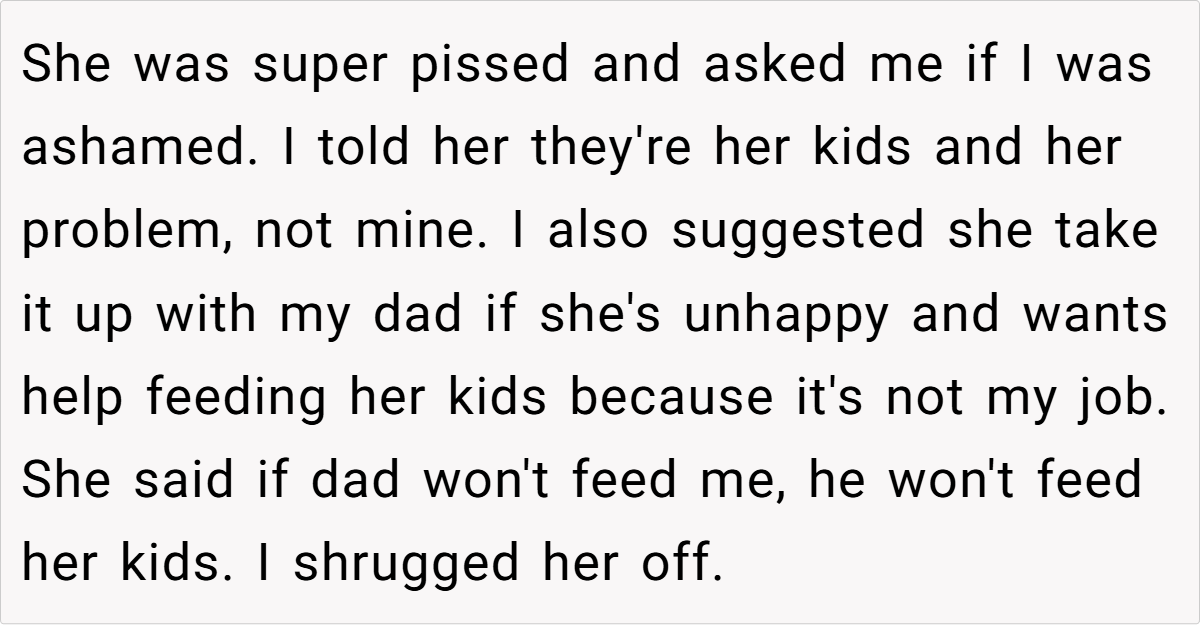
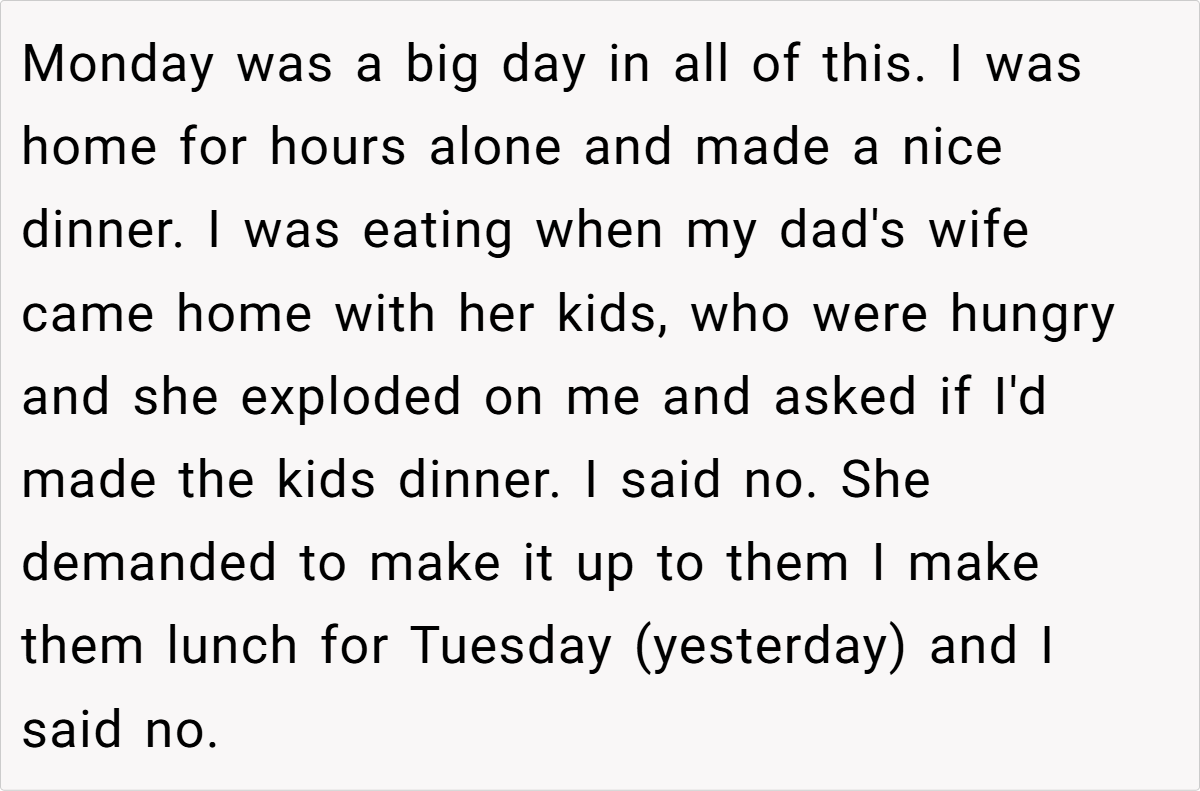
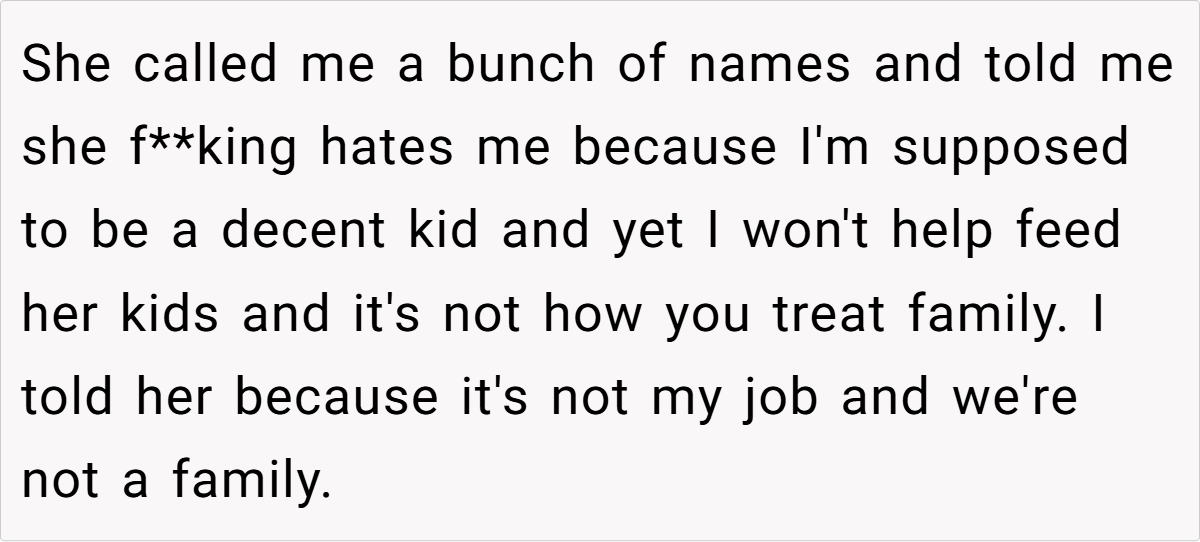

Navigating blended family responsibilities is a challenge for everyone involved. Parenting expert Dr. Laura Markham reminds us that “Parenting isn’t about what our child does, but about how we respond.” In situations like these, clarity of responsibility is essential. When a teenager is already handling his own meal preparation—out of necessity and independence—it’s unreasonable to expect him to absorb additional duties that belong to his dad’s household.
In co-parenting arrangements, especially in blended families, boundaries must be firmly set. Expecting a 16‑year‑old to cater to three younger children not only disrupts his routine but also places an undue burden on him. It’s important for each household member to handle their own needs. When responsibilities are forced onto someone outside their direct role, it can create resentment and lead to a breakdown in family communication.
Furthermore, when adults try to offload their responsibilities onto children, they risk undermining the child’s autonomy and self-reliance. As Dr. Markham emphasizes, fostering independence is key to building a child’s resilience. By paying for his own ingredients and making his own food, this teen has learned essential life skills that shouldn’t be compromised by being made to shoulder extra, unrelated tasks.
Finally, effective co-parenting requires respectful, business-like communication that focuses solely on the children’s needs. When his dad’s wife demanded that he prepare food for her children, it wasn’t about streamlining a schedule—it was about shifting responsibilities onto a teenager who already has a defined role. The focus should remain on ensuring that every child’s needs are met by their primary caregiver, not on an imposed sense of obligation.
Here’s the input from the Reddit crowd:
Many Redditors have weighed in on this issue with a mix of humor and empathy. Some argue that while sharing household duties is important, it shouldn’t be forced upon someone who is already managing his own meals. Others note that if the dad refuses to contribute to feeding his own child, it’s unfair to expect the teen to take on additional burdens. These diverse opinions underscore the need for clear family boundaries and equitable division of responsibilities.
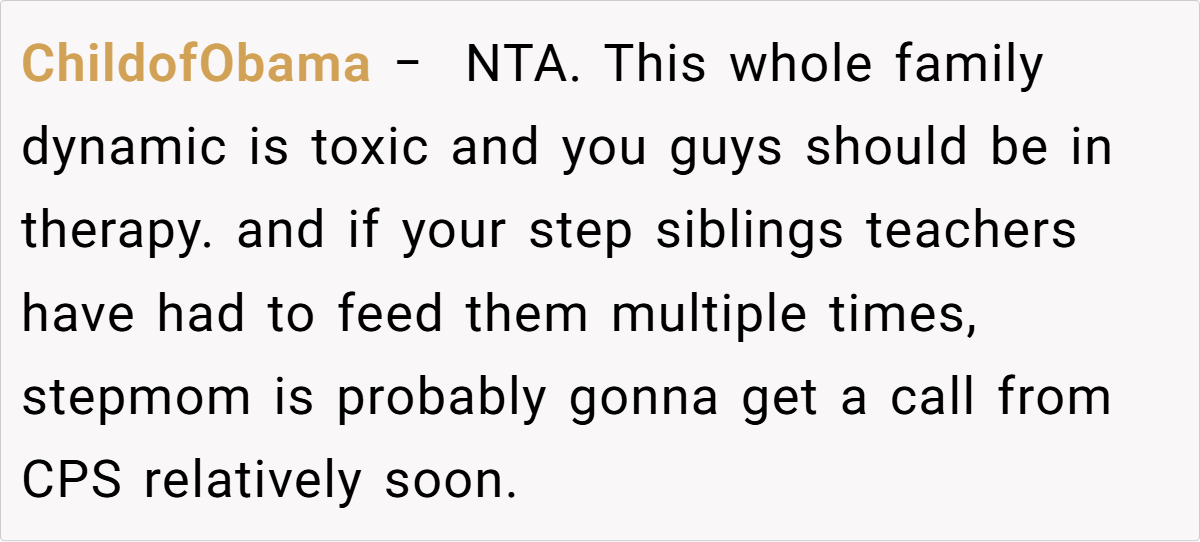
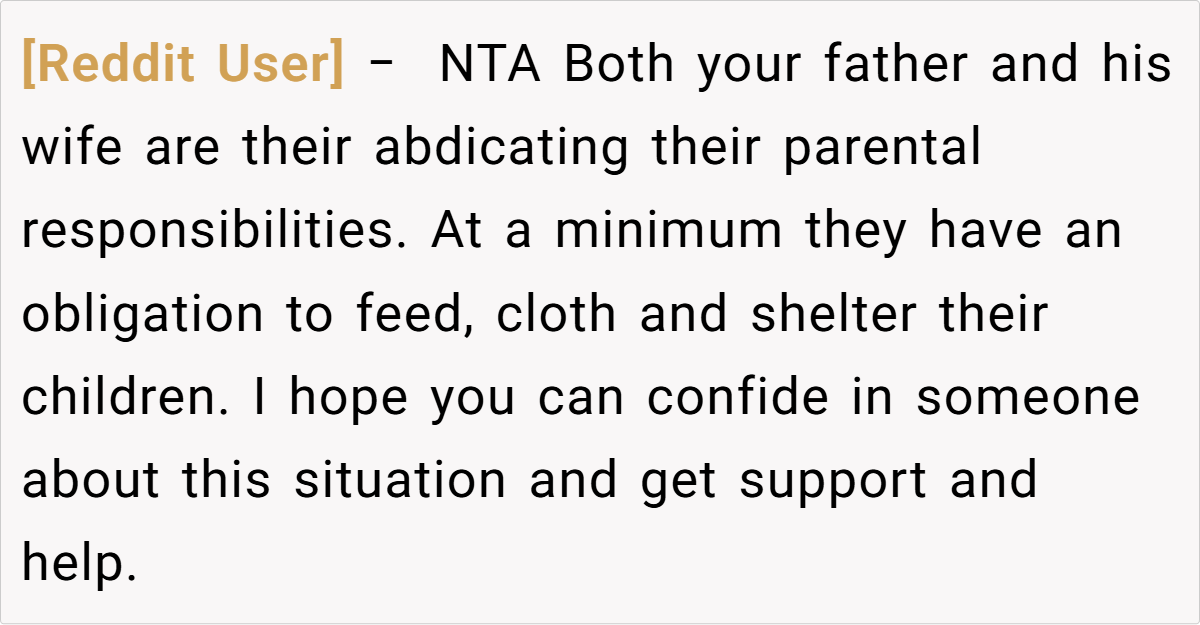
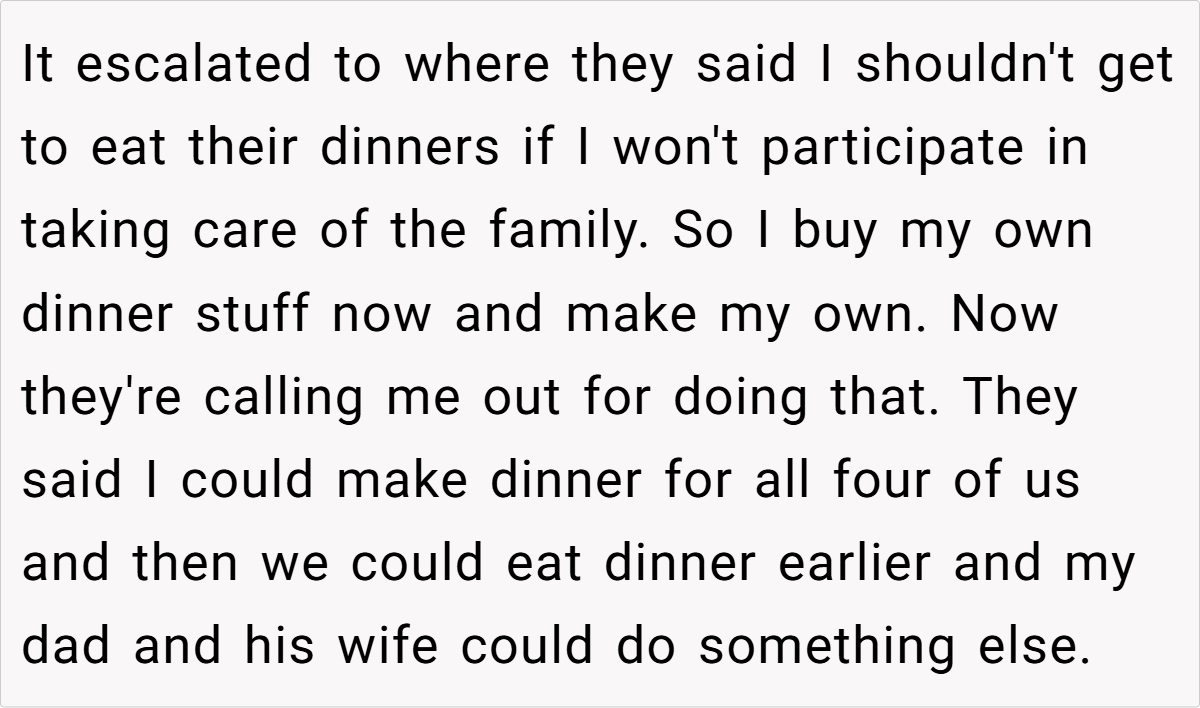
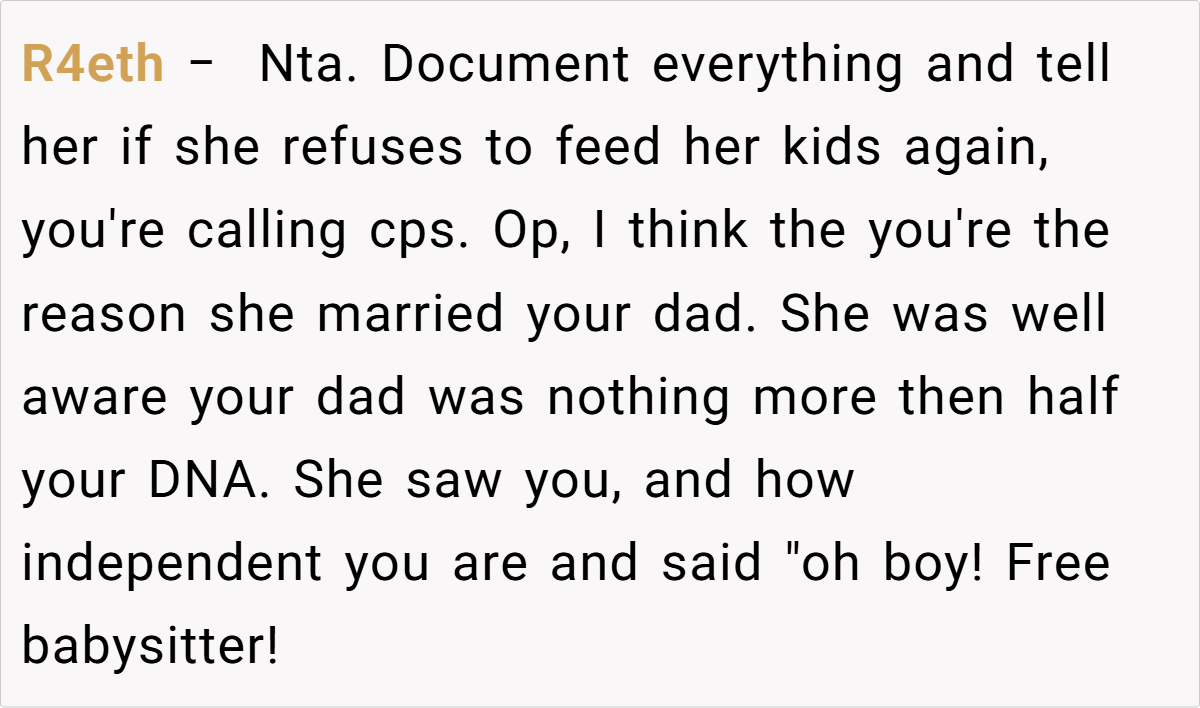
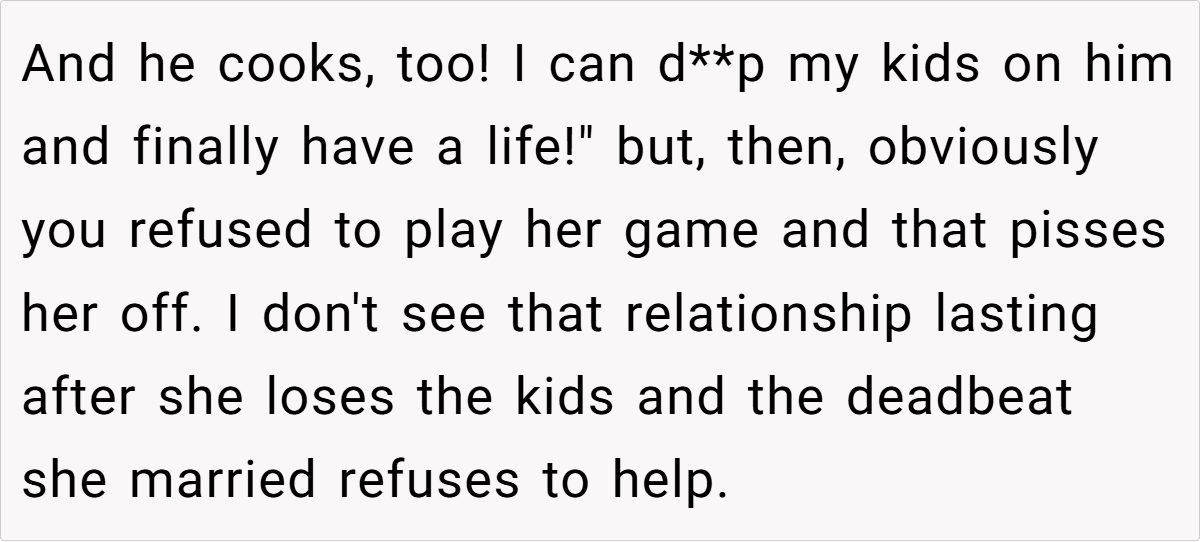

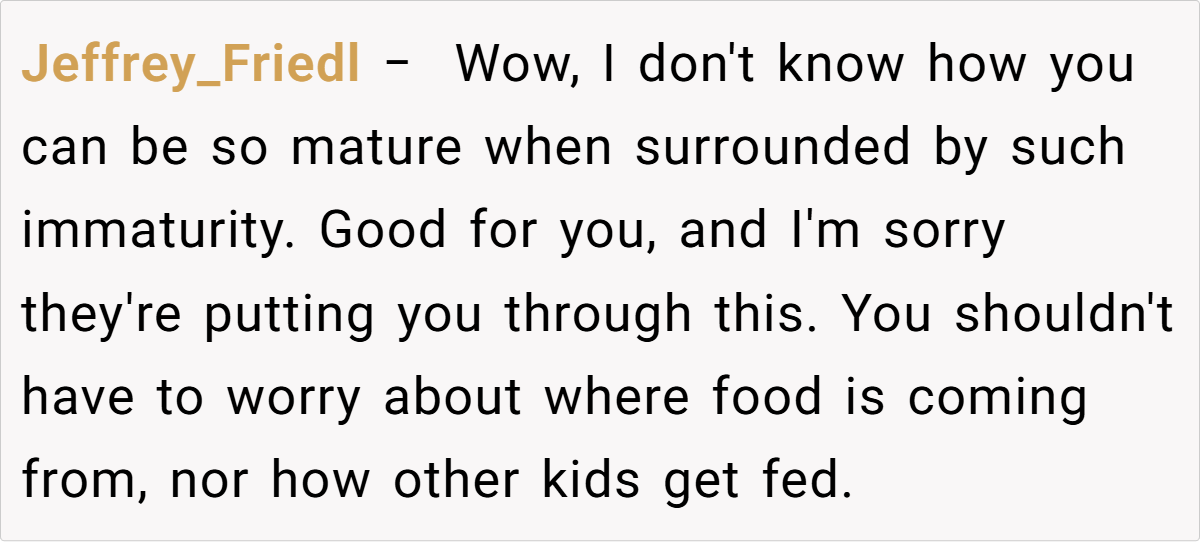
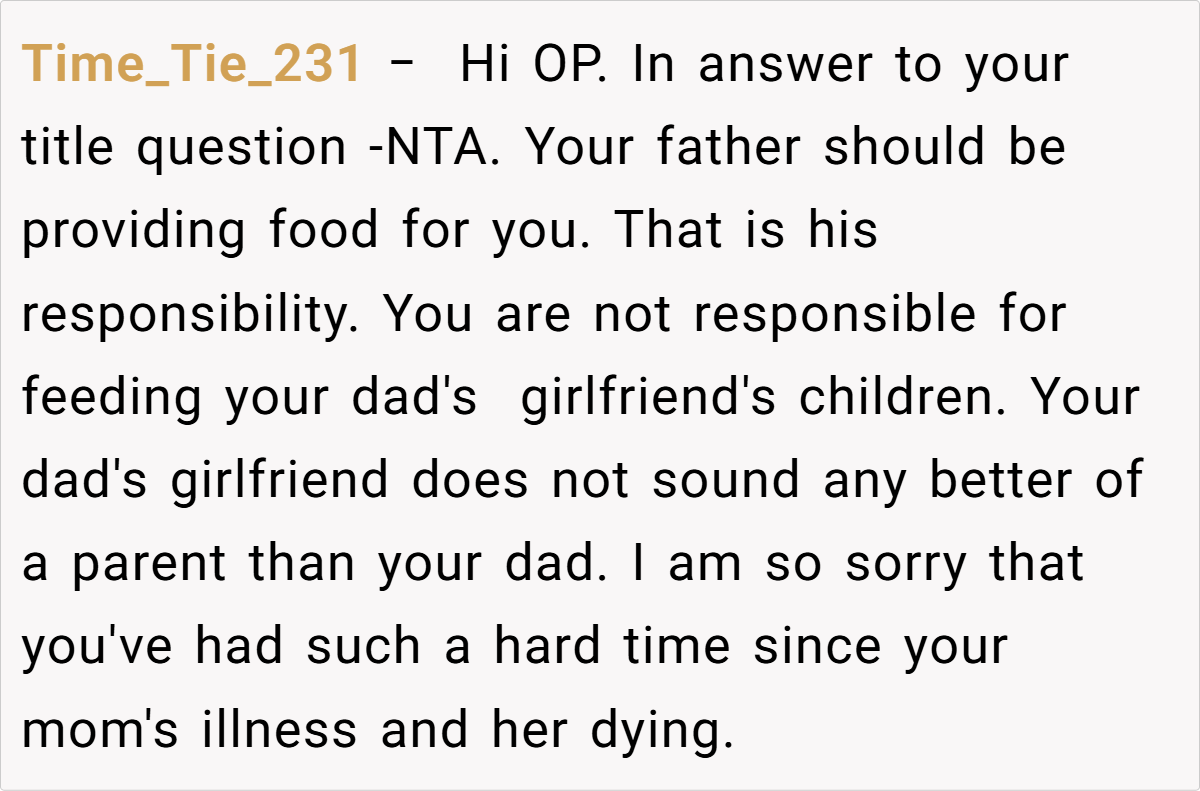
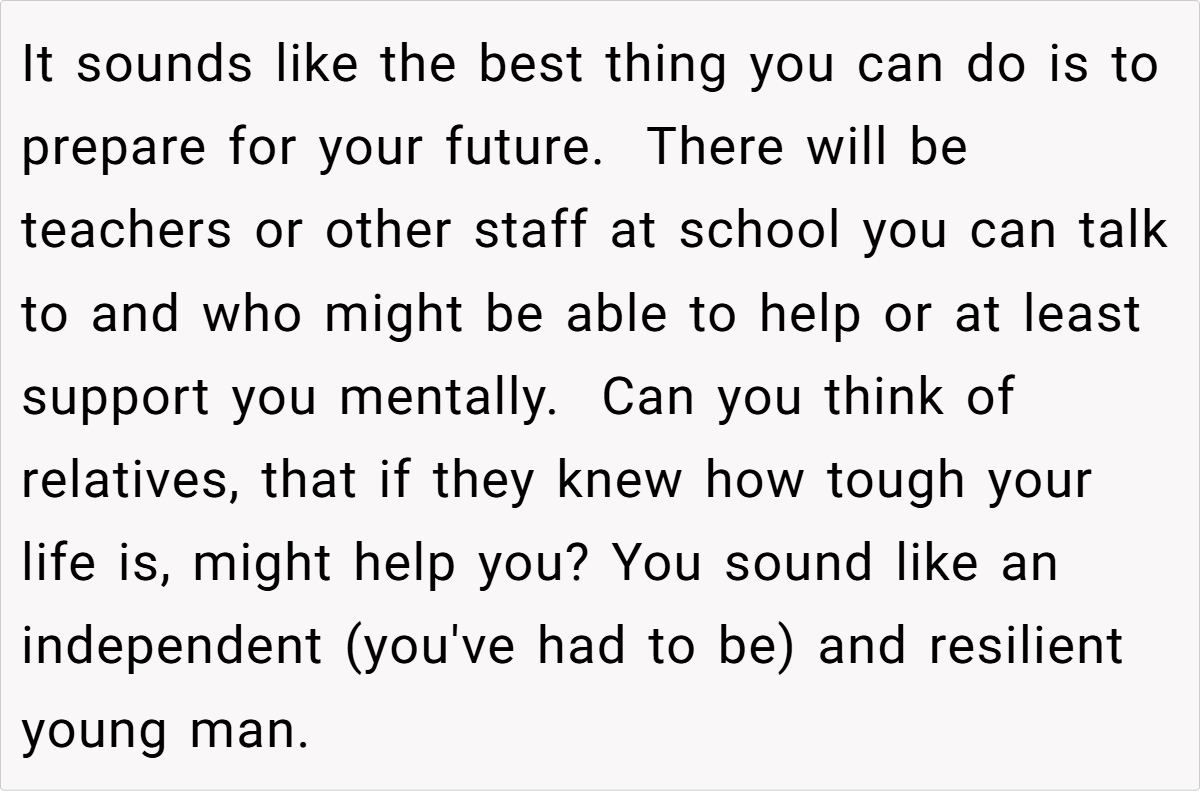
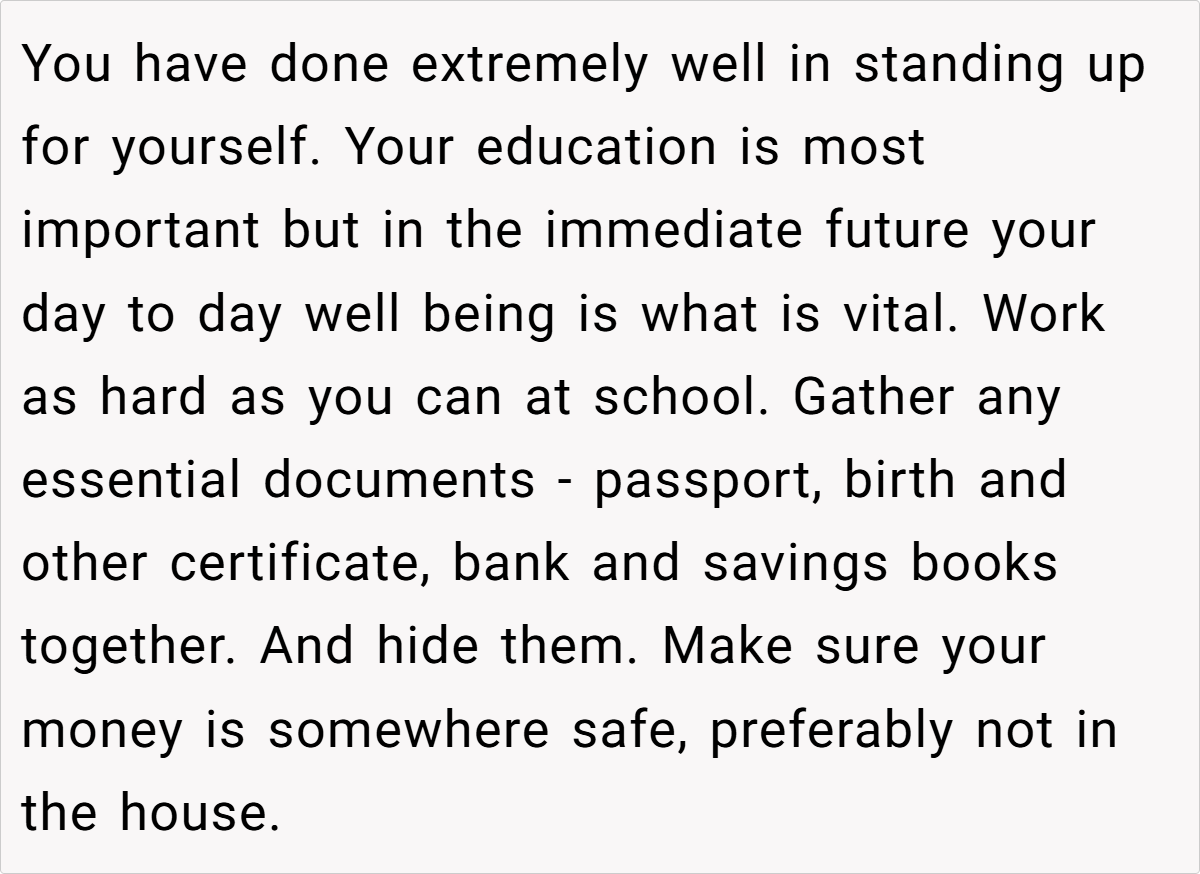
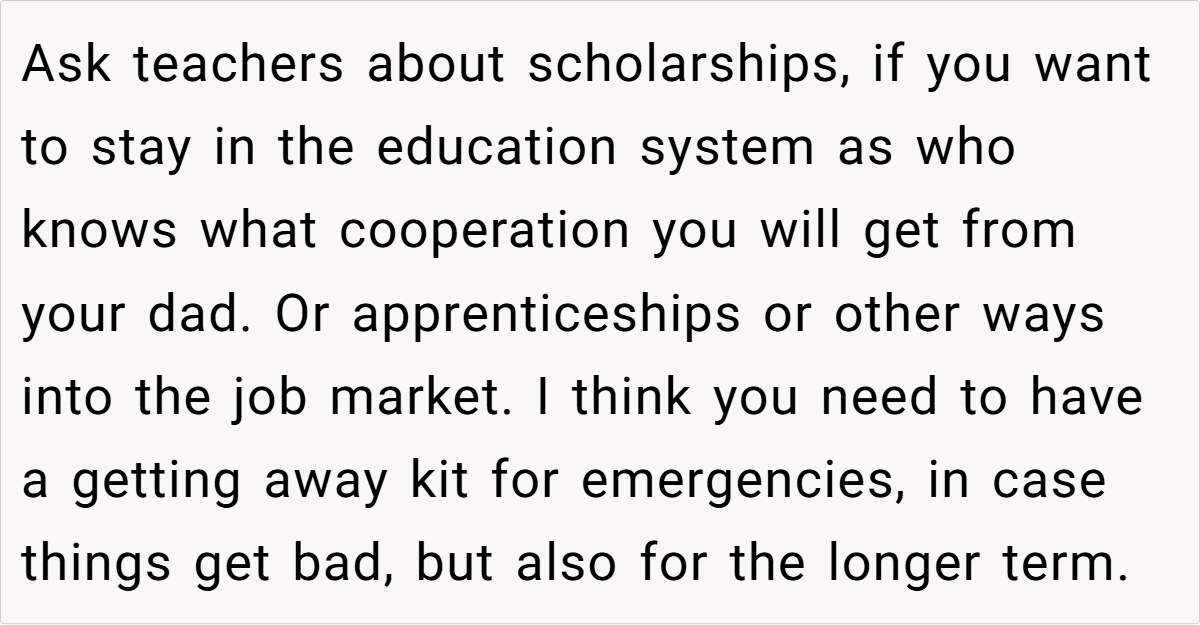
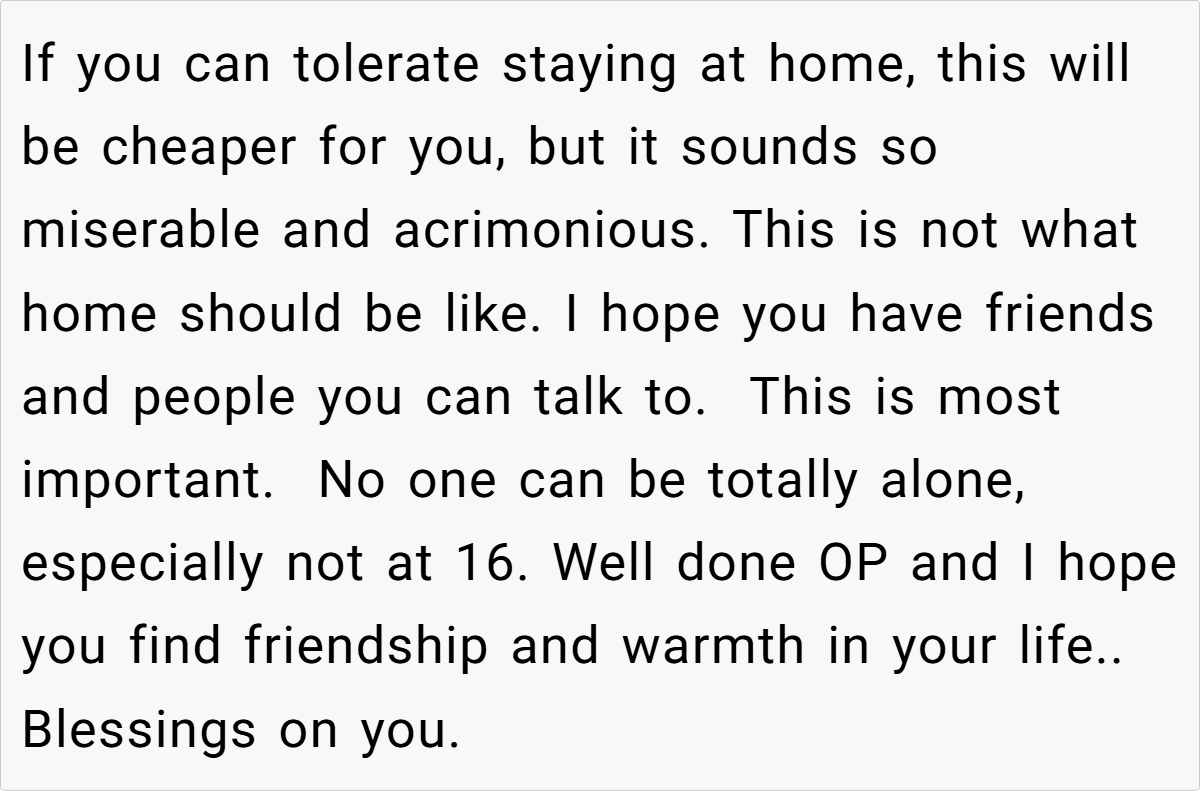
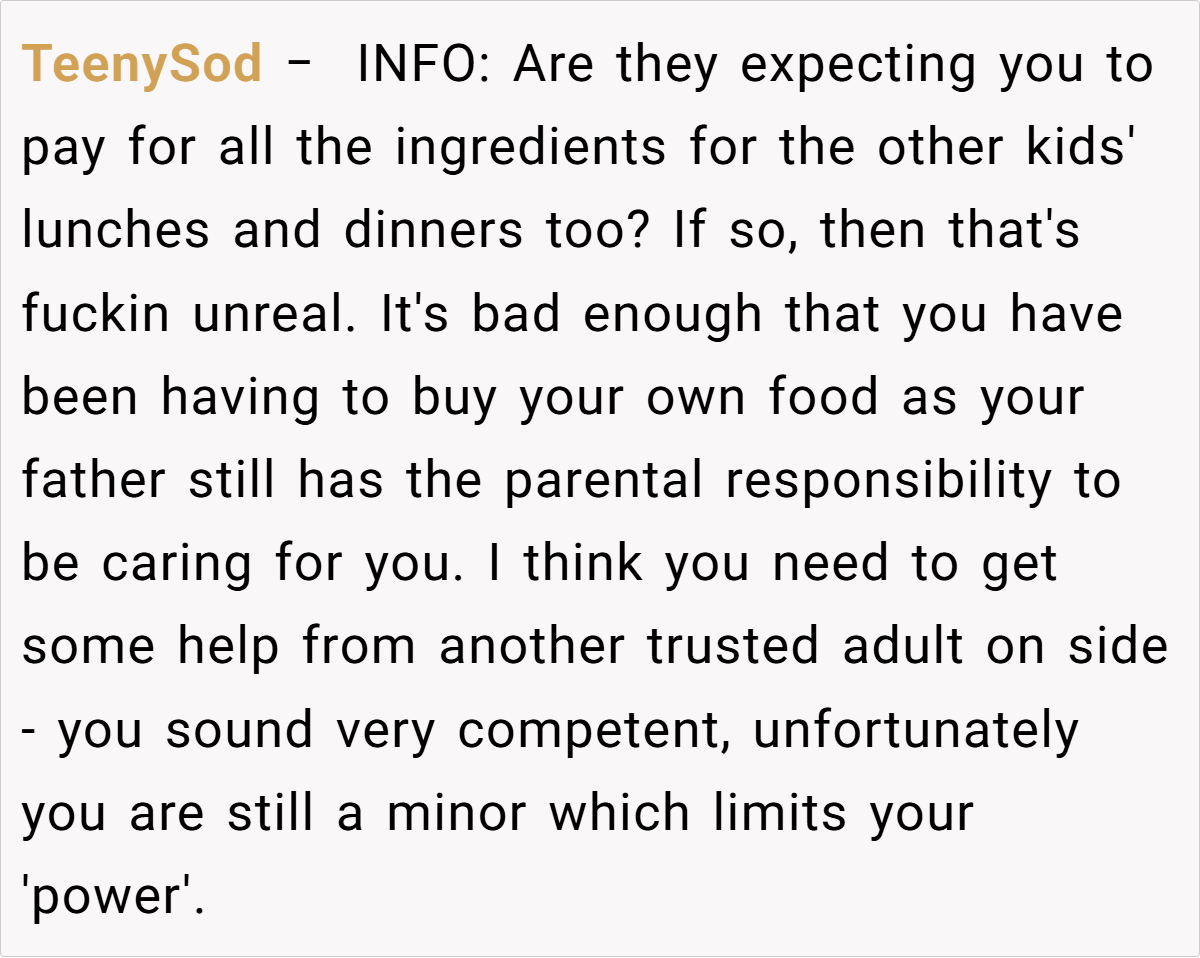
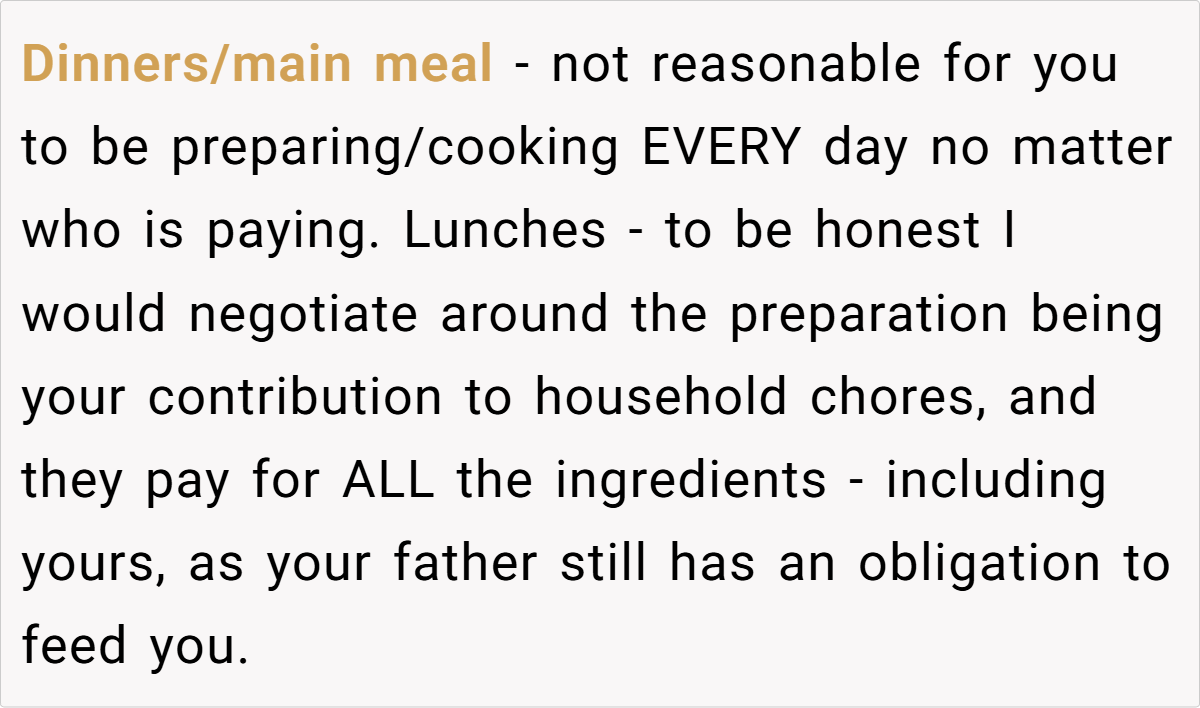

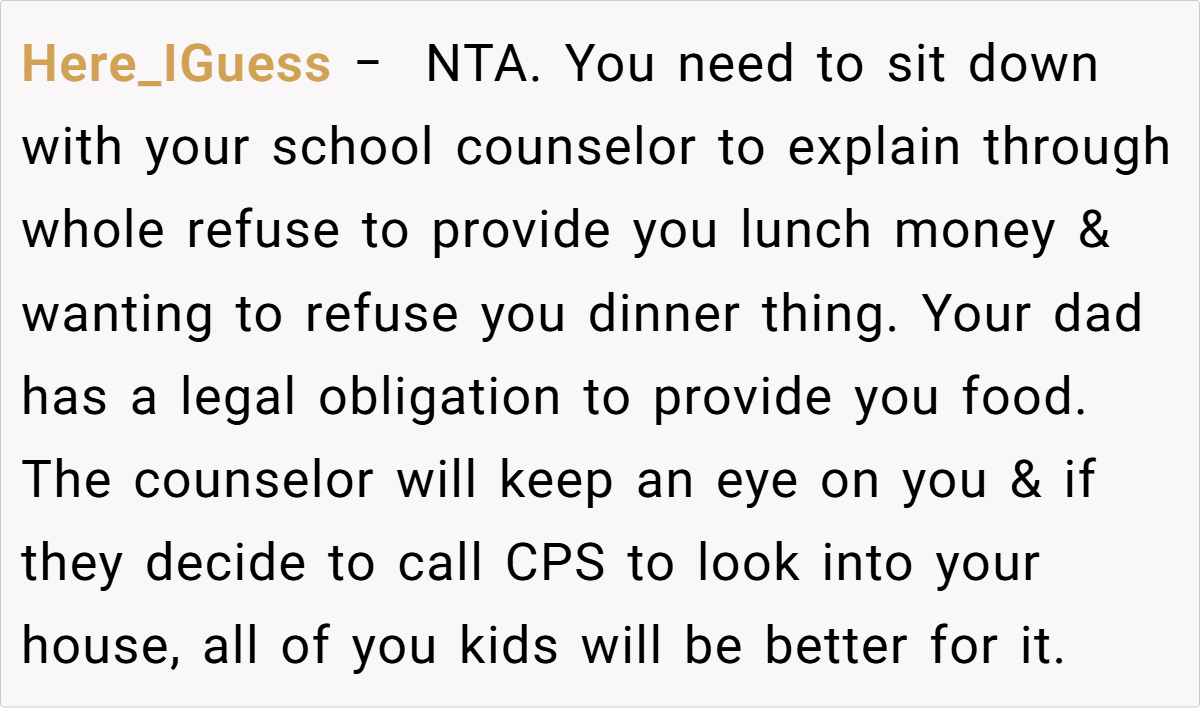

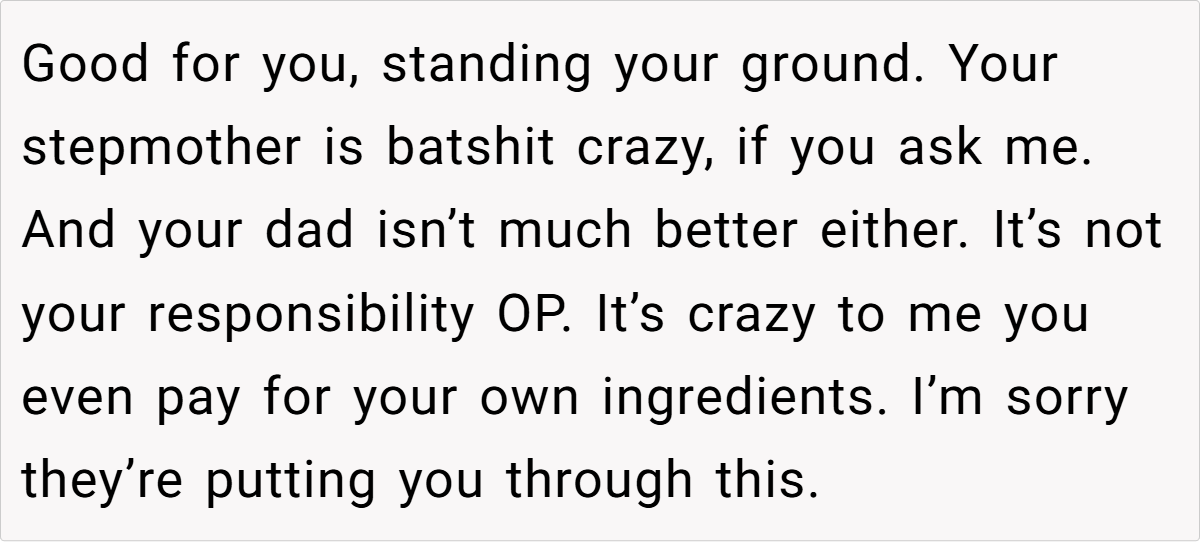
This story shines a light on the struggle of balancing personal responsibility with family expectations in a blended household. The teen’s refusal to cook for his dad’s stepkids isn’t about a lack of care—it’s about maintaining boundaries and ensuring that responsibilities remain clear. In a situation where each household member should focus on their own well-being, forcing a teenager to cover for others crosses the line into unfairness.
What do you think? Is it reasonable for him to stand his ground, or should he take on extra duties for the sake of family unity? Share your thoughts and experiences in the comments below!

